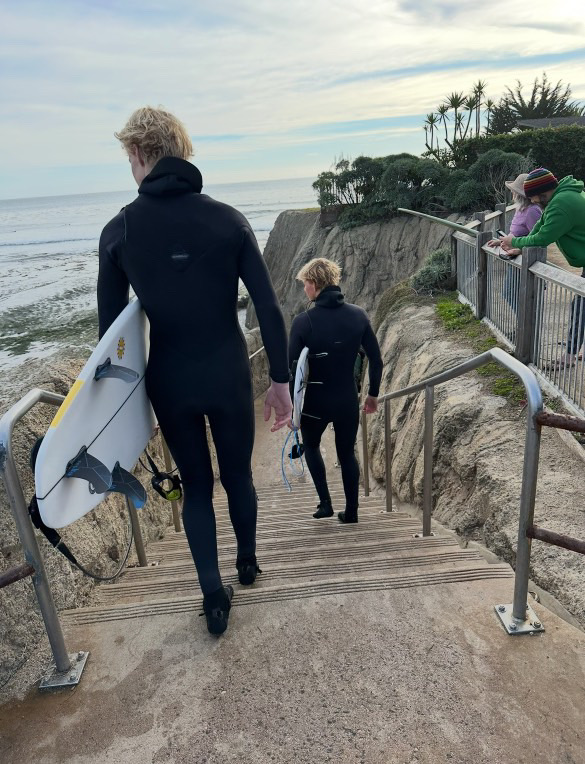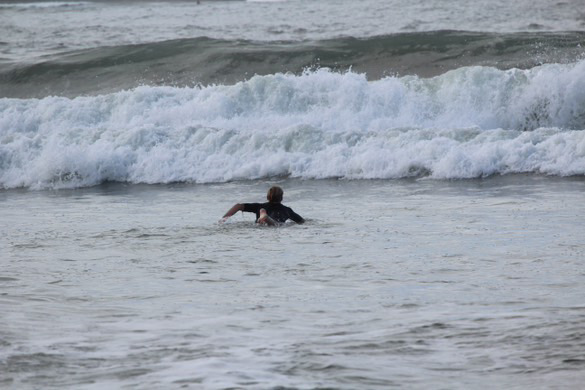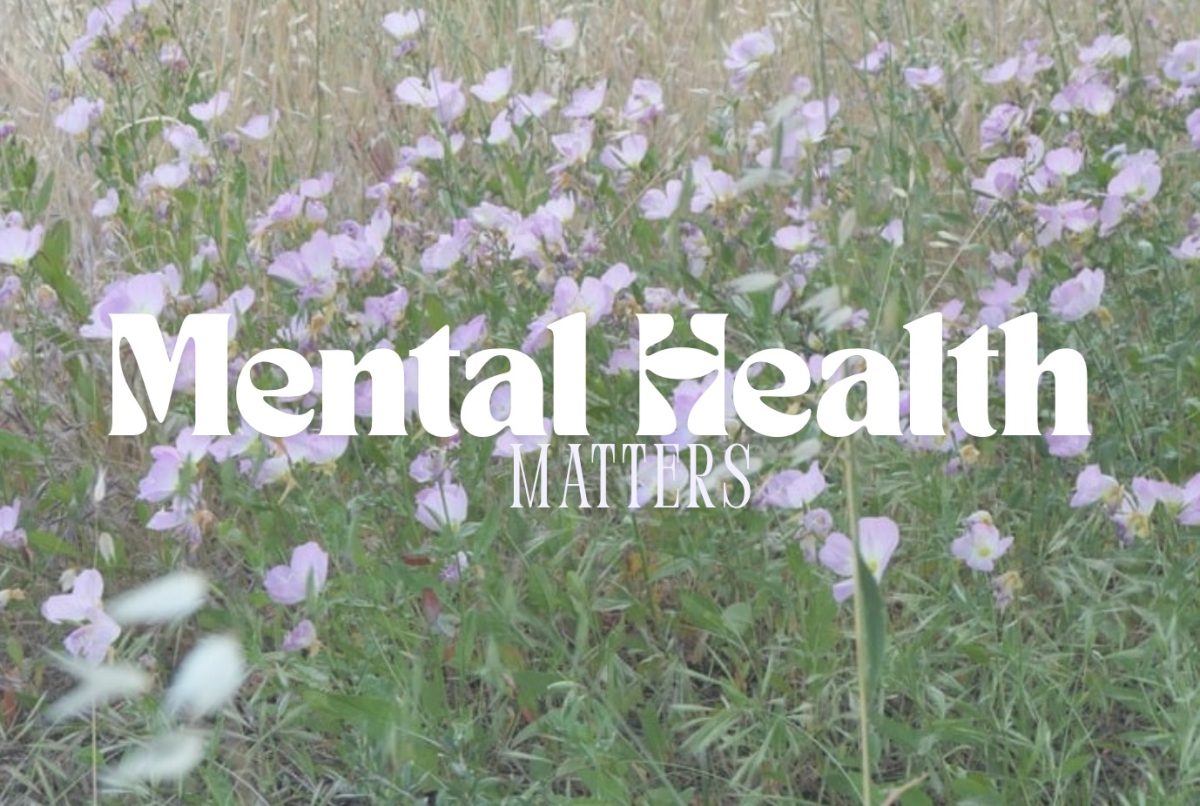Surfing is more than just a sport—it’s an adventure, a test of patience and for many, a way to connect with nature. For many, it offers a chance to escape the rush of everyday life and find clarity in the waves
Senior Giacomo Resmini describes the initial challenge of the sport, noting how it teaches patience over time. “You go out and you kinda sit there for thirty minutes just to maybe catch one or two waves,” Resmini says. “In the end, throughout life, you kinda just get more patient. You realize that things don’t have to go by super fast.”
For Resmini, it’s not just about catching the perfect wave. Sometimes, it’s about simply being in the water.
“Sometimes just sitting out there on the waves, just in the water, is fine enough. You get to just relax and forget about all your worries, and it’s kinda just stress-free.” It’s this sense of serenity that draws many surfers to the water, providing a break from the hustle and bustle of daily life.
However, surfing isn’t without its challenges, particularly when it comes to environmental concerns.
“A lot of surfers go to these remote spots and surf industries follow, and that kinda creates pollution in the water,” Resmini said. “A ton of surfers really don’t like this because that ruins the break. It ruins the shore. It ruins how the surf feels.”

As surf culture grows, so does the responsibility to protect the pristine nature of the locations surfers cherish.
Senior Lydia Mitz echoes similar sentiments about surfing’s connection to nature.
“It’s really good because you’re obviously out in nature, and usually, if you choose to go, it’s a nice day, and you can just be fully focused on something else for a couple of hours,” Mitz said.
For newcomers, the sport may seem intimidating, especially when it comes to paddling out.
“I think it helps a lot to have swum before because that’s the hardest part for a lot of people—paddling out,” Mitz said.
Mitz encourages a relaxed approach to learning, emphasizing the importance of perseverance.
“For me personally, I don’t really care that I’m not super good. People are generally pretty friendly if you’re just trying to learn.”
Senior Tyler Kramer brings attention to a more personal aspect of the sport—fear.
“Through surfing, I learned more about how I handle fear and stuff,” Kramer said.
Overcoming the mental barriers that come with surfing is an integral part of the sport. For Kramer, surfing is not just about the physical challenge but about confronting personal fears, whether in the water or in life. Kramer also highlights the environmental aspect of surfing and where surfers may have a unique connection to the ocean, which fuels a desire to protect it.
“We appreciate the ocean and see firsthand, like, the pollution that happens to it,” Kramer says. “And so, like, it gives us a more firsthand perspective on what it needs.”
Senior Roan Haney emphasizes the mental clarity surfing provides.
“I would say that surfing has a positive impact on my mental health because it gives a good connection to nature, and it definitely clears your mind,’ Haney said. “You can see some cool nature and have fun doing something to just kinda get your mind off everything else.”

Bound by their love for the waves, find not only a physical challenge but a sanctuary for mental and emotional well-being. They see firsthand the delicate balance of the ocean’s ecosystem and feel a responsibility to protect it. Resmini encourages surfing to be accessible to anyone seeking a connection with nature.
“When someone comes up to you and says that you shouldn’t be there or this is too hard for you, don’t listen to them,” Resmini said.”Everyone starts somewhere, and you should just continue doing what you love.”






![UNSUNG HEROES — Fred Korematsu, Karen Korematsu and Aiko Herzig-Yoshinaga are awarded the Asian American Justice Medal to recognize their fight for justice following the incarceration of Japanese Americans during World War II. In addition, scientists Shuji Nakamura, David Ho, Tsoo Wang, Mani Menon and Chih-Tang “Tom” Sah receive the Asian American Pioneer Award. "[As a scientist,] it is crucially important to be able to communicate your work and your discoveries to [not only] other scientists, but also to the general public," Ho said. Photo by Talia Boneh](https://cmagazine.org/wp-content/uploads/2025/07/useee-1200x800.jpg)


